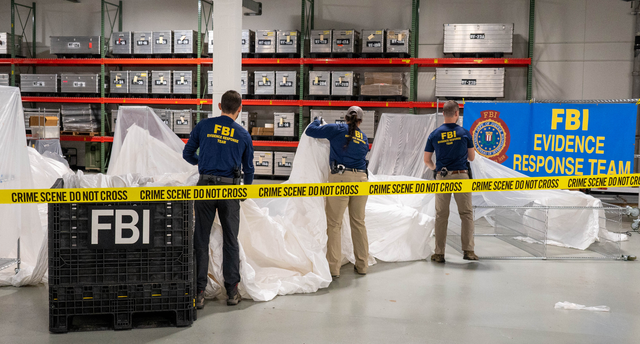
By Stacy M. Brown, NNPA Newswire Senior National Correspondent
Records obtained by the American Civil Liberties Union (ACLU) have shed light on the Federal Bureau of Investigation’s (FBI) persistent enforcement of nondisclosure agreements (NDAs) on state and local law enforcement agencies seeking to use the agency’s cell site simulators.
The ACLU found that the agreements prohibit disclosure of the technology’s use to the public and the courts, even going as far as obstructing defendants’ constitutional right to mount a proper defense.
The organization found that records highlighted the FBI’s compelling local police to conceal vital information about these intrusive devices from judges, defense attorneys, and the media.
Laura Moraff, Brennan Fellow with the ACLU’s Speech, Privacy, and Technology Project expressed strong disapproval.
“These records show the FBI continuing to force local police to conceal basic information about this invasive technology from judges, defense attorneys, and the press. That is unacceptable,” Moraff stated in a news release.
“The FBI should immediately stop enforcing these extreme secrecy requirements and should inform courts and defense attorneys in cases where this technology has been used,” she added.
Cell site simulators, commonly known as stingrays or “IMSI catchers,” are powerful surveillance tools that invade the privacy of cell phones.
By mimicking cell phone towers, those devices emit signals to deceive nearby cell phones into transmitting identifying information, enabling precise location tracking.
While primarily used to track the location of a suspect’s cell phone, they inadvertently gather information from the phones of unsuspecting individuals in the vicinity.
Previously, the FBI mandated strict NDAs for state and local police departments interested in procuring their own cell site simulators.
However, the FBI backed away from this practice nearly a decade ago due to severe criticism.
A Maryland court emphasized that “such a broad prohibition on disclosure of information to the court… prevents the court from exercising its fundamental duties under the Constitution.”
The ACLU found that recently released documents indicate that the FBI has continued to impose NDAs when local police request the FBI’s assistance in locating a suspect’s phone using its own equipment.
The documents also revealed:
1. Concealment from courts: The FBI’s agreement prohibits local police from using information obtained from cell site simulators as “primary evidence in any affidavits, hearings, or trials.” Additionally, the FBI commits to employing “all appropriate legal means to limit testimony regarding the technology in any state or local proceeding.” Consequently, officers can gather evidence using a cell site simulator but withhold crucial information from court filings, depriving the court of comprehensive knowledge about the investigation.
2. Secrecy over everything: The documents demonstrate that the FBI adopts a “jigsaw” or patchwork theory of disclosure, aiming to keep even minor details about cell site simulators hidden from the public. An email from May 2020 clarifies that the FBI will only deploy a cell site simulator at the request of local police after they have acknowledged and agreed to the FBI’s Nondisclosure Agreement. Previous versions of the FBI’s NDA went to the extreme of coercing police to drop charges rather than reveal their use of the technology.
3. Disregard for ethical concerns: Among the documents, an email exchange from 2015 highlights a local official expressing “serious reservations” about signing a nondisclosure agreement due to concerns that the terms “could place our prosecutors in a position of compromising their statutory and ethical duties.” Although much of the exchange remains redacted, records from five years later indicate that the FBI continued to impose NDAs on local agencies in certain circumstances.
ACLU officials said the recent revelations regarding the FBI’s enforcement of NDAs on local law enforcement agencies using cell-site simulators have raised significant concerns about transparency and constitutional rights.
They argued that the practice impedes defendants’ ability to mount a fair defense and obstructs the judiciary’s duty to uphold the Constitution.
Calls for the FBI to immediately cease enforcing such extreme secrecy requirements and to notify courts and defense attorneys when this technology is employed have grown louder, ACLU officials asserted.


